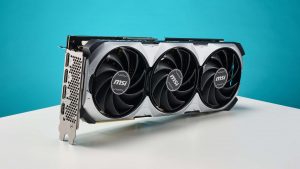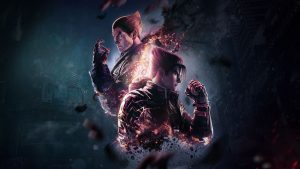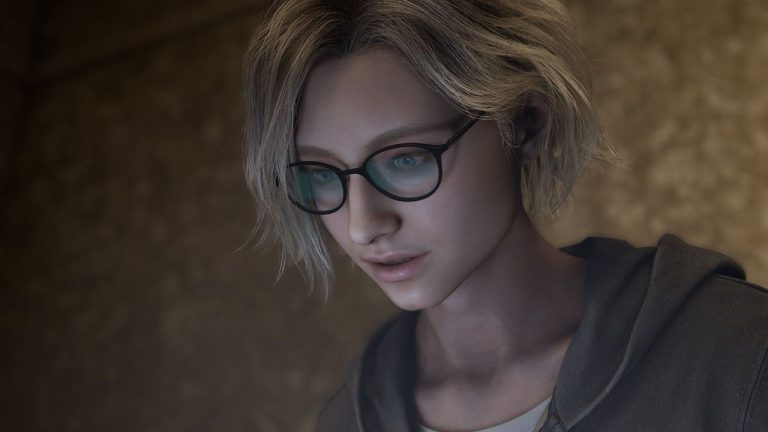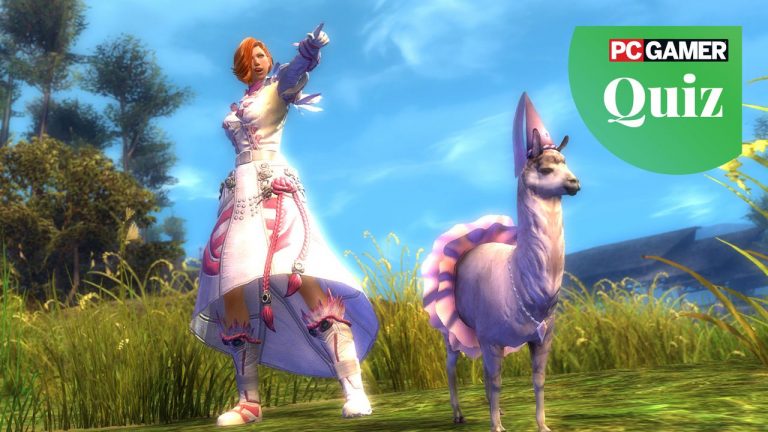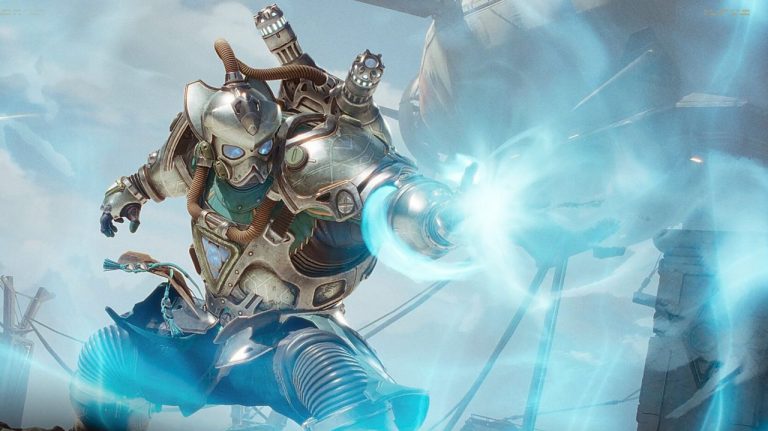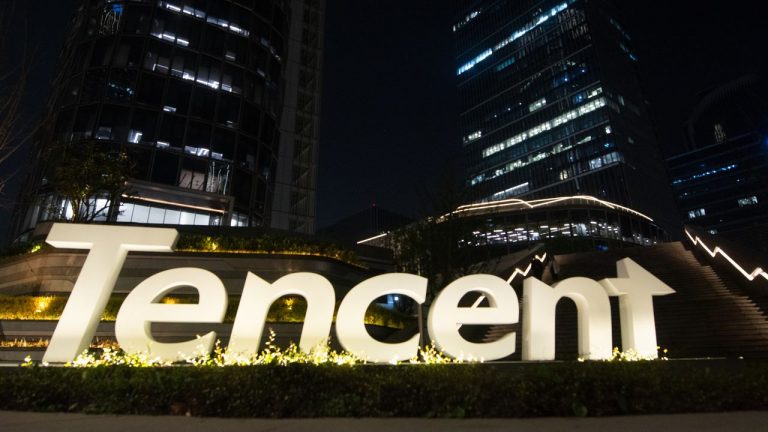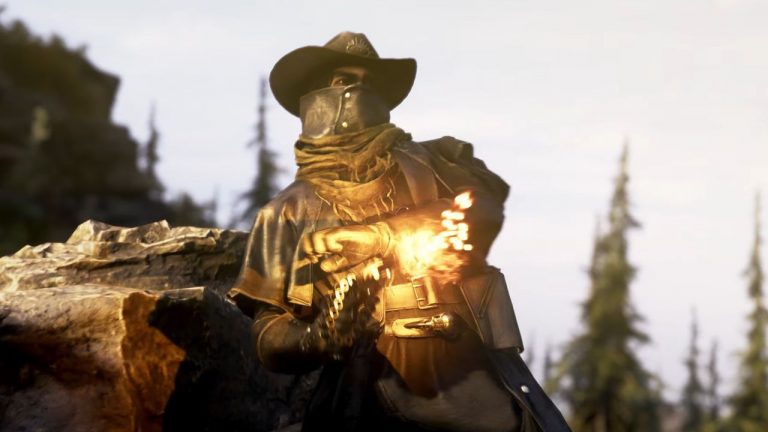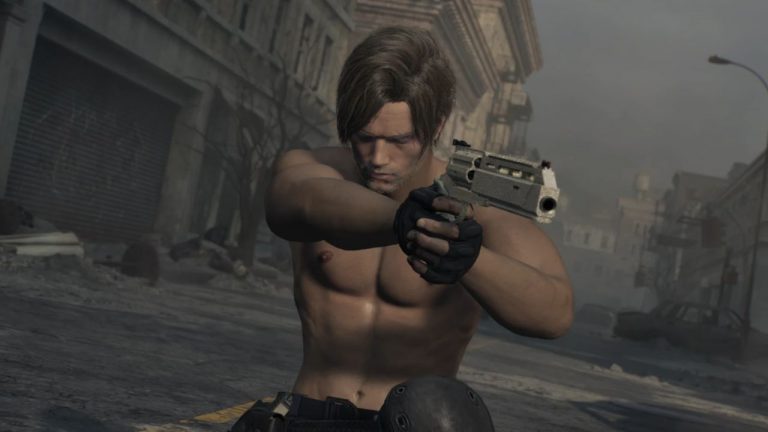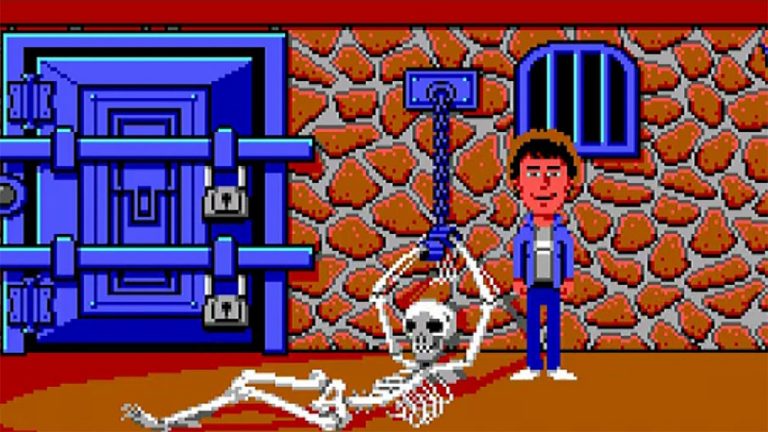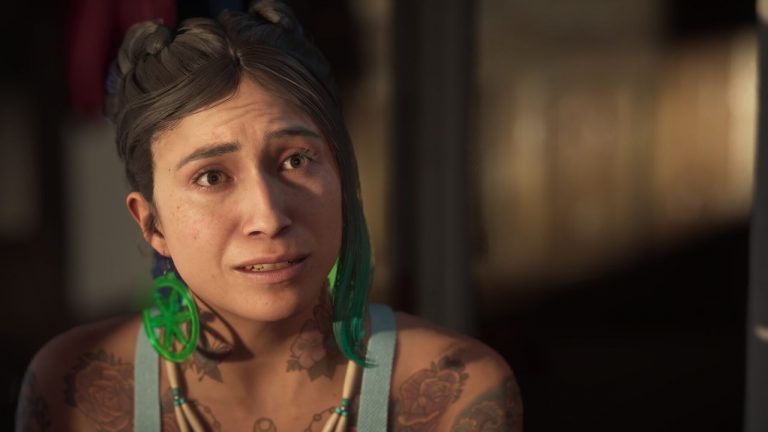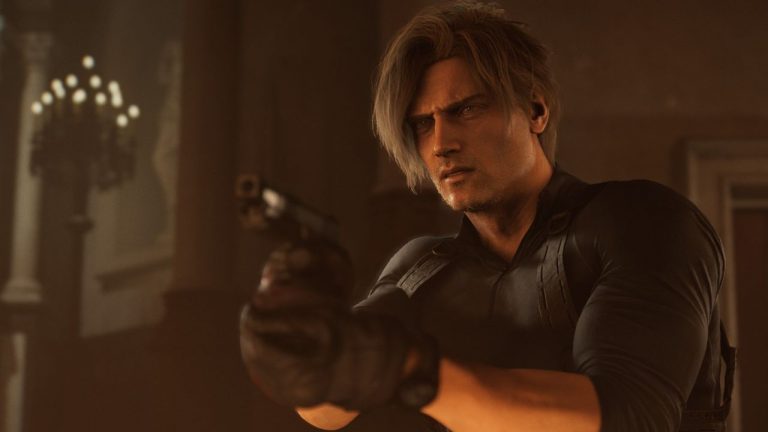What is it? A thrilling 3D fighter with bears, devils and giant robots.
Release date January 26, 2024
Expect to pay $60 / £55
Developer Bandai Namco Studios Inc.
Publisher Bandai Namco Entertainment
Reviewed on Nvidia GeForce RTX3070, AMD Ryzen 7 2700X, 32GB RAM
Steam Deck TBA
Link Official site
Tekken 8 feels like returning home. A bit of a cringe opener, I know, but across my 40 hours spent with this game for the review I couldn’t help but feel like I was being reunited with an old friend; a series I adore so dearly. Tekken is freakin’ back, baby, and I couldn’t be happier.
It’s a game so rife with nostalgia-inducing moments yet manages to bundle them together into this incredibly approachable, newbie-friendly package. It’s a far cry from the barebones experience that was its predecessor—Tekken 8 is truly the next generation of fighters, a bombastic showdown that you should absolutely witness now matter how long it’s been since you last peeped a King of Iron Fist Tournament.
Tekken 8 feels like returning home.
Tekken 8’s nostalgic vibes feel deliberate. It’s going all-in on its story—called The Dark Awakens—building up to a dramatic conclusion to the ongoing war between the very loving father-and-son duo Jin Kazama and Kazuya Mishima. A story that’s been going on for bloody years, mind you.
It’s such a fitting culmination, one that genuinely shocked me at how good it actually is. The story mode is fantastically paced, seamlessly transitioning from cinematics to fights across its numerous chapters. The cutscenes are beautifully animated, going for some huge-ass anime-scale fights, which were rad to watch. Some chapters even diverge from the standard ‘cinematic into fight’ formula—like one that turns things into an oldschool Tekken Force-style brawler—which made sure things never got too monotonous. I clocked in at just under four hours to finish it, which I did in one sitting because I was hooked.
Dialogue and translations can be a bit shaky and stiff at times, but it’s one of the most cohesive stories Tekken has spat out in a hot sec. Not only that, but every single member in the base roster turns up in some capacity, which was so wonderful to see. Even if it’s just a brief glimpse, every single character gets their moment.
(Image credit: Bandai Namco)
Tekken 8’s story is filled with little callbacks to previous games and references that long-time fans will absolutely eat up. It doesn’t do a fantastic job of tying up every loose end, but it gives nods to a ton of stuff that I think veteran Tekken heads will be happy with. Even if this is your first Tekken game, it’s a story that’s action-packed enough to find plenty of drama and entertainment in, and there are primers to catch you up on the story if you need a refresher.
Something that definitely made Tekken 8’s story mode even more enjoyable for me was its new Special Style control scheme. Think of it like a condensed, more casual and actiony way to play Tekken. Combos are pulled off at the press of a single button, with directional buttons affecting which moves get thrown out.
I’m not super well-versed in every character on the roster, and Special Style made chapters where I was playing unfamiliar fighters so much more fun to play. I didn’t feel like a flopping fish trying to frantically figure out strings and combos, and while I think Special Style is a lot more limited compared to similar offerings (such as Street Fighter 6’s Modern controls), it’s an amazing starting point for beginners or casuals who want to join the fun.
(Image credit: Bandai Namco)
It was a great way for me to get to grips with the new push to aggression with its Heat system, too. I’m fully converted to this new mechanic, which gives players a meter to manage every round. Activating it changes the properties of certain moves and allows for a huge, hard-hitting Heat Smash to be thrown out. There was never a clear moment of when to use my Heat from battle to battle, and appropriately managing my resources to get the most out of it was a layer of strategy I really enjoyed.
I think some veteran players will stick their nose up at Heat at first, but combined with the new addition of chip damage and recoverable health, it’s changed the way I think about each battle. Taking a big chunk of recoverable damage and then using a well-timed combo with Heat to recover it all felt great, and I think players will really start to warm up to it.
Dorya!
The Dark Awakens isn’t the only offline mode Tekken 8 has to offer, either. Character episodes offer fun ‘what if?’ endings for its entire roster, which led me to some belly-laugh moments like an idyllic Mishima camping trip or Panda living her best life. While the fights themselves are a bit sloggy—not helped by the game’s AI offering little challenge even on Hard difficulty—the opening and ending cutscenes for everyone make them absolutely worth playing through.
(Image credit: Bandai Namco)
There’s even the return of Tekken Ball, a mode that’s lain dormant since Tag Tournament 2. I wasn’t expecting to love this one as much as I did. It plonks my regular fighters on the beach and, instead of wailing on each other, there’s a fun little beach ball to unleash my move list on instead. I found it a great way to unwind between more demanding matches and I’m sure it’ll become the go-to goofy game mode for me and all my pals to play.
Something I would really love to see is Bandai Namco bringing back more classic single player/offline modes for us throughout Tekken 8’s lifespan. Survival, Team Battle, Time Attack—it’d be sick to have these old school modes back to give even further life to the game’s offline offerings.
Its training mode is the best the series has ever seen.
Then there’s the brand-new Arcade Quest, which is kind of a second story mode. Except instead of deadly familial war, it’s a more grounded narrative about arcade culture that plonks a mini-me avatar (with some very basic customisation options) among a friend group who just got their hands on Tekken 8. It’s a far more casual offering than The Dark Awakens, acting as an onboarding process for new players.
It’s very short and sweet, not offering a whole lot of substance. The tutorials sprinkled throughout its brief story will be of great help to newbies though. Some super helpful things get taught—like how to punish unsafe moves, how to do a combo on an airborne opponent and how to make use of Tekken 8’s new Heat system—that some newcomers could overlook.
(Image credit: Bandai Namco)
The story is very sunshine-and-rainbows which is like, fine, but wasn’t really anything that had me clamouring for more. Easily the best part of Arcade Quest is its Super Ghost Battle mode that’s unlocked after some early progression.
The next battle
Not only does Super Ghost Battle allow me to challenge NPC ghosts and earn experience to rank-up and the occasional costume, it also allows me to train and fight my own ghost and then go on to fight the ghosts of my pals. Fighting my own ghost, being able to see the way I played, the moves I used way too much, the flaws in my game plan and things that ghost me would catch real me out with, proved to be an invaluable learning tool. Don’t get me wrong, it’s also all kinds of silly fun beating up your computerised self.
I even made use of other players’ ghosts during the brief two days the online servers were switched on. If I was getting my ass kicked, I was able to go and look at their ghost and study their moves without them being attached to a real person for me to get salty at. Player ghosts learn the more their real-life counterparts play across offline and online modes, and you can guarantee I’ll be periodically returning to my own to see just how many of my terrible habits she’s picked up.
It’s not the only neat method Tekken 8 has to level up my fighting game skill, either. Its training mode is the best the series has ever seen. It’s straight-up fantastic, offering combo challenges for every character, explanations of what certain moves do and how you can tweak them to combo them into other moves or stances. Frame data is baked in from the start for the very first time too, which is an absolute basic need for fighting games in The Year of our Lord 2024.
(Image credit: Bandai Namco)
There are a lot of options though and not all of them are very well explained. I thought for a good while that the game had removed the function to record moves on the training dummy, only to find out that I had to switch the training mode style to “Defensive” to access that option. It could prove overwhelming to those starting out, but for more veteran players it’ll be great for fine-tuning scenario setups.
Even then, there’s the absolute game-changing Replays & Tips feature that can do some of that scenario set up for me. It takes recent games against CPU and real people and lets me play them back. It shows both my and the opponent’s command history, frame data, and offers me tips on how to deal with stuff. It mostly deals with the big things—super unsafe moves that can be easily punished, highs that can be evaded and the correct input to break out of throws.
The coolest thing by far is the ability to take control of either side at any point. Being able to run back through my games, see where I did something wrong and then immediately take over to see if I could do anything different was fantastic. Setting up specific situations in training mode can be a ballache, so having it at my fingertips with the press of a single button was genuinely mind-blowing. Some of the tips will automatically isolate the situation too, which allowed me to practice punishing moves over and over again before diving back into the replay to continue watching.
Enter the Fight Lounge
I took all of the little tips and tricks I’d picked up while playing my main, Italian exorcist Claudio Serafino, and brought them into online mode. While I can access Tekken 8’s online offerings from the main menu, I can also take my Arcade Quest avatar into a social lobby and hop on an actual arcade cabinet, with other players able to walk over and play with me. Being able to walk around and see other players sitting on the floor with a fightstick or playing at a cab was really cool, and I could walk over to them and spectate their game too.
(Image credit: Bandai Namco)
I managed to get into a handful of ranked and casual games during the times the server was live. One of my favourite changes is that you can’t lose points for your first 10 ranks now. It made losing in the lower levels feel far less terrible than it used to, and made me treat those early ranks more like the learning curve it should be than a gauntlet I was constantly ranking up and down in.
Unfortunately, Tekken 8’s netcode is still not quite up to snuff. I played across a variety of regions and connections, including Wi-Fi, and only found stable connections with players who were using ethernet and in my region. Almost every Wi-Fi player I encountered I suffered horrible lag with, and even well-connected folk in other regions saw me dropping inputs.
It’s better than Tekken 7’s, from what I can tell, and when it works it’s incredibly smooth with only one to two frames of rollback. But it still has a long way to go compared to other fighting games. I was at least hoping for Wi-Fi connections to feel more stable across the board, but unfortunately it doesn’t seem to be the case. For something that’s arguably one of the most important aspects of a fighting game, it’s something that Bandai Namco needs to work on.
(Image credit: Bandai Namco)
It’s not Tekken 8’s only weakness, either. I had high hopes for this game’s customisation, which was touted to have more options and more freedom. It kind of has the former? There are a number of categories to choose from, but the options feel incredibly limited. Male fighters have a single pair of shorts and copious trousers, while the women have a pair of daisy dukes, a few trousers and then rows of skirts.
The variety is really lacking, and while some characters have pieces of their outfits that can be used across every fighter (like Leroy’s bucket hat), I was unable to use separate pieces of each character’s default outfit like I could in Tekken 7. Tops still fit very strangely on male fighters, hovering above their shoulders for fear of clipping. Customisation options like eyes and eye makeup have no colour wheel picker, leaving me stuck with the strange default colourways.
Unfortunately, Tekken 8’s netcode is still not quite up to snuff.
Previewing items also feels horrible. It’s sluggish, requiring multiple loading popups just to look at something and then remove it. Considering avatar customisation tries stuff on automatically as you hover over it, I’m not sure why they couldn’t do the same with character customisation.
Bandai Namco has proven it can do considerably better character customisation with games like Soulcalibur, so it’s bizarre to me how bad this one is. While it does some things better than Tekken 7, it felt like a worse experience overall. It’s a shame because I love putting fun and stupid outfits on my characters, and the lack of choices and basic oversights really put me off doing it.
Smooth running
Tekken 8 has been running beautifully on my rig, for the most part. I’ve maintained a steady 60fps in battle on Ultra settings, which continued across my well-connected online matches. I did occasionally experience some strange slowdown during character intros, but that would immediately vanish as soon as the round began. The actual gameplay was never impacted.
(Image credit: Bandai Namco)
It’s a graphically stunning game, too. Lighting is atmospheric while still having great visual clarity while fighting, with stages like Into the Stratosphere and Arena (Underground) being particular standouts. The roster all look fantastic too, and depending on the chosen stage will accumulate dust, dirt or moisture on their clothes and skin.
I also highly value portability when it comes to my fighting games. I get together with my fellow FGC friends quite regularly, which usually requires someone to bring a setup of some kind. I managed to get Tekken 8 running at a steady 60fps on my Steam Deck with mostly medium settings (and a few set to low). It’s worth noting that I had to grab GE Proton to get things working, but once I did it was smooth sailing. It’s a little crusty looking, sure, but still perfectly readable, which I really appreciate.
It’s a good job it runs well on both my desktop and Steam Deck, because Tekken 8 is a game that won’t be leaving my regular rotation for a long ass time. It’s a thrilling experience, easily one of the best entries in the series to date. Its weaknesses can be patched up over time—if Bandai Namco can get its netcode in a better place and make customisation not feel terrible to use, it’ll make a fantastic game exceptional.
Whether you’ve been playing Tekken for years, looking to return after a long absence or even never touched the series before, Tekken 8 is the game you should be playing. It’s the perfect warm nostalgia hug for long-time enjoyers while doing loads of good stuff to make things approachable for fighting game newbies. It’s bombastic, action-packed and so, so much fun to play. I can’t wait to dive back in already.

